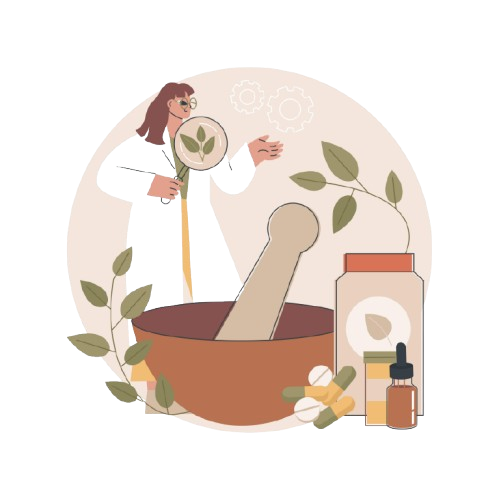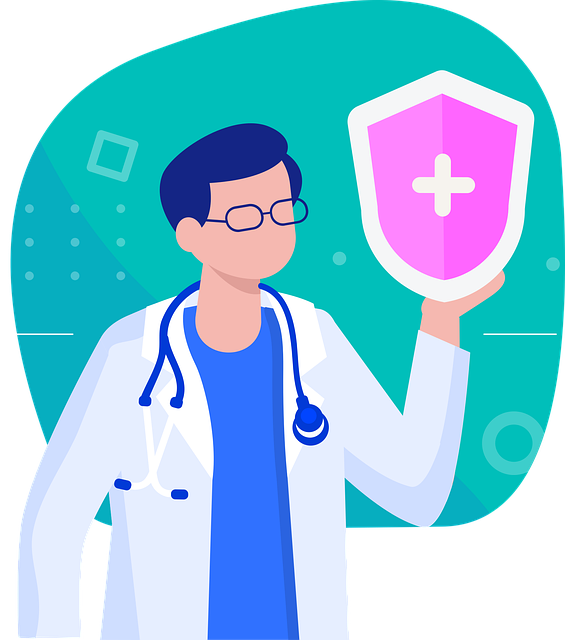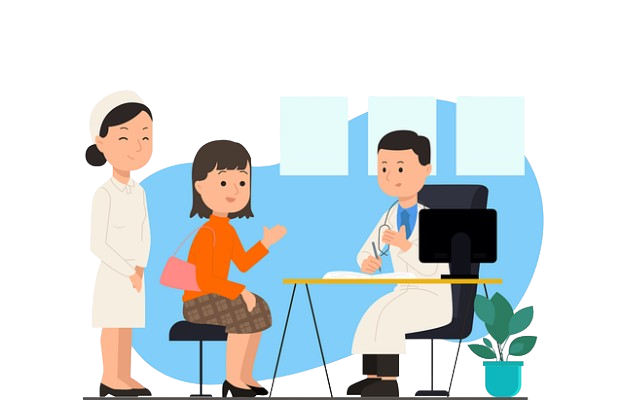Bachelor of Ayurvedic Medicine and Surgery (BAMS) is a professional undergraduate program designed to train students in the principles and practices of Ayurveda — an ancient, holistic system of medicine rooted in Indian tradition. This course combines the traditional knowledge of Ayurvedic healing with modern medical science, preparing students to diagnose and treat various health conditions using herbal remedies, dietary changes, lifestyle interventions, and natural therapies. The curriculum encompasses subjects like anatomy, physiology, pharmacology, pathology, internal medicine, surgery, and Panchakarma, ensuring graduates are well-rounded Ayurvedic physicians.

Who Should Consider This Career?
A career in Ayurveda through the BAMS program is well-suited for individuals who are deeply interested in holistic healing, ancient wisdom, and patient-centered care. If you’re passionate about natural therapies and want to make a meaningful impact in the healthcare sector, this field offers a rewarding and respected path. Ideal candidates include:
- Holistic Thinkers: Individuals who believe in balancing body, mind, and spirit for complete well-being.
- Nature Enthusiasts: Those drawn to herbal medicine, natural healing, and traditional health systems.
- Empathetic Healers: People who are compassionate and committed to long-term patient care.
- Curious Learners: Individuals interested in combining ancient medical knowledge with modern scientific insights.
- Cultural Heritage Advocates: Those proud of Indian traditions and motivated to preserve and promote Ayurveda globally.
This career is a powerful choice for those who aspire to lead the revival of natural medicine, contribute to preventive healthcare, and transform lives through the science of Ayurveda.
Skills Learned in BAMS (Bachelor of Ayurvedic Medicine and Surgery)
The BAMS program equips students with a robust blend of Ayurvedic and modern medical skills essential for effective practice in today’s healthcare landscape. Graduates develop the following core competencies:
- Ayurvedic Diagnosis & Dosha Assessment: Mastery in pulse diagnosis (Nadi Pariksha), understanding of prakriti (body constitution), and identification of doshic imbalances using classical methods.
- Herbal Medicine Formulation: Skills in preparing and prescribing Ayurvedic medicines like churnas, asavas, arishtas, and tailas with knowledge of raw drug identification, purification, and standardization.
- Panchakarma Therapy: Proficiency in therapeutic detoxification procedures such as Vamana, Virechana, Basti, Nasya, and Raktamokshana, along with supportive therapies like Abhyanga and Shirodhara.
- Integration with Modern Medical Sciences: Understanding of human anatomy, physiology, pathology, pharmacology, surgery, ENT, and diagnostic tools from both Ayurvedic and allopathic perspectives.
- Patient Care & Communication: Ability to counsel patients on diet, lifestyle (dinacharya, ritucharya), and disease prevention while maintaining empathetic, ethical, and clear communication.
- Clinical Decision-Making & Case Management: Analytical thinking for Ayurvedic diagnosis, individualized treatment planning, monitoring outcomes, and modifying therapies as needed.
- Record-Keeping & Documentation: Competency in maintaining patient records, clinical documentation, and basic familiarity with electronic medical records (EMR) systems.
- Legal & Ethical Practice: Knowledge of Ayurvedic regulations, patient confidentiality, informed consent, and adherence to the ethical guidelines of medical practice.
- Practice & Clinic Management: Skills for independently managing Ayurvedic clinics, dispensaries, and wellness centers including inventory, pharmacy, and patient flow systems.
- Collaboration & Public Health Participation: Capacity to work in multidisciplinary teams, contribute to public health initiatives, and promote Ayurveda through community outreach programs.
- Research Orientation & Continuous Learning: Ability to engage in clinical research, document findings, and stay updated with the latest advancements in Ayurveda and integrative medicine.
This comprehensive skillset prepares BAMS graduates to excel in clinical roles, wellness entrepreneurship, research, and healthcare leadership across traditional and modern settings.

Need Quick Help? Chat with Our BAMS Admission Expert Now!
Fast responses, real-time support, and expert advice—just one click away!
BAMS Course in Karnataka: Key Insights
Take the Next Step: Choose the Right BAMS College!

Dreaming of a career in Ayurveda? We’re here to guide you every step of the way. With expert advice, verified information, and end-to-end support, you can confidently choose the best BAMS college in Karnataka.
What You Get:
- Access to verified college database (Govt. & Private institutions)
- Personalized shortlist of top BAMS colleges as per your NEET score
- Guidance for management quota & payment seat admissions
- Detailed info on fees, eligibility & required documents
Ready to Start?
Tap into our expert counselling and secure your BAMS seat hassle-free.
BAMS Subjects & Hours of Teaching (Theory & Practical)
First Year
Clinical/Lab Posting (1st Year): ~480 hours
Second Year
Third Year
Fourth Year (Final Year)
Internship Overview
After completing the final exams, students undergo a 1-year rotatory internship in various clinical departments. This hands-on experience strengthens clinical competency, decision-making skills, and practical knowledge in Ayurvedic treatment procedures.
Skills Acquired During Internship
(I – Perform Independently; S – Perform under Supervision; O – Observe and Assist)
- Diagnosis and Treatment Planning: Nadi Pariksha, Prakriti Pariksha, and case documentation (I)
- Herbal Medicine Dispensation: Preparation and administration of Ayurvedic formulations (I)
- Panchakarma Procedures: Perform basic Panchakarma therapies like Abhyanga, Vamana, Virechana (S)
- Minor Surgical Practices: Ksharasutra application, Jalaukavacharana, Agnikarma (S)
- Maternal and Child Care: Assist in Garbhini Paricharya, Sutika Paricharya, and Bala Roga care (O)
- Preventive Health Counseling: Educate patients on Dinacharya, Ritucharya, and Ahara-Vihara (I)
- Ayurvedic OPD/IPD Management: Case history, follow-ups, discharge summaries (I)
- Pharmacy and Drug Preparation: Rasashastra-based medicine preparation and quality control (S)
- Emergency Management: Basic life support, emergency care integration with modern medicine (O)
Thanks! Here’s a matching section for BAMS in the same style and tone as your BSc Medical Imaging Technology content. This focuses on Higher Education & Specialization Options after BAMS:

Need Quick Help? Chat with Our BAMS Admission Expert Now!
Fast responses, real-time support, and expert advice—just one click away!
Higher Education & Specialization Options After BAMS
After completing a Bachelor of Ayurvedic Medicine and Surgery (BAMS), graduates can explore a variety of higher education and specialization opportunities that enhance their expertise, open new career pathways, and deepen their understanding of Ayurveda, modern medicine, research, and management. These advanced academic pursuits are designed to elevate a BAMS graduate’s role in clinical practice, teaching, research, and healthcare leadership.
Below are some of the most sought-after options for higher education after BAMS:
MD/MS (Ayurveda)
This is the most direct and popular route for specialization after BAMS. The postgraduate degree in Ayurveda offers various specialties such as:
- Kayachikitsa (General Medicine)
- Panchakarma
- Dravyaguna (Herbal Pharmacology)
- Rasashastra (Herbo-mineral Pharmacy)
- Shalya Tantra (Surgery)
- Shalakya Tantra (ENT & Ophthalmology)
- Prasuti Tantra & Stree Roga (Gynaecology & Obstetrics)
- Kaumarbhritya (Pediatrics)
These programs is typically of 3 years and provide in-depth training in clinical and theoretical aspects of Ayurvedic disciplines.
MBA in Healthcare Management / Hospital Administration
For BAMS graduates looking to transition into healthcare leadership and management, MBA programs in Healthcare Management or Hospital Administration are ideal. These programs equip professionals with the skills needed to manage Ayurvedic hospitals, wellness centers, and public health organizations.
MPH (Master of Public Health)
BAMS doctors often pursue MPH to work in government health schemes, NGOs, or international organizations like WHO. With a strong foundation in preventive care, Ayurveda professionals are well-suited for roles in community health, epidemiology, and health promotion.
MSc in Nutrition, Yoga, or Clinical Psychology
Many institutions offer MSc programs in specialized holistic domains, such as:
- MSc in Nutrition & Dietetics
- MSc in Yoga Therapy
- MSc in Clinical Psychology These programs allow BAMS graduates to diversify into lifestyle medicine, mental health, or therapeutic wellness practices.
PG Diploma Courses in Ayurveda Specializations
Short-term diploma courses are available in specific fields of Ayurveda and alternative therapies, such as:
- Panchakarma Therapy
- Ayurvedic Pharmacology
- Ayurvedic Cosmetology
- Pain Management
- Ayurveda for Lifestyle Disorders
These 1-year programs provide focused, practical training and can be pursued while practicing.
Higher education after BAMS unlocks a world of specialized knowledge and advanced career options — whether you’re passionate about clinical excellence, holistic healing, public health, education, research, or management. Choosing the right path based on your interests and strengths will not only shape your professional journey but also contribute meaningfully to the global healthcare ecosystem.
Career Opportunities & Job Roles After BAMS Course
A Bachelor of Ayurvedic Medicine and Surgery (BAMS) equips graduates with a solid foundation in traditional Ayurvedic science, along with exposure to basic modern medical practices. As holistic healthcare gains popularity worldwide, BAMS graduates enjoy diverse career opportunities across clinical, academic, research, wellness, and administrative domains.
Below is a detailed overview of the key job roles and responsibilities after completing BAMS:
Emerging Trends in Ayurvedic Healthcare in India
The Ayurvedic healthcare sector in India is undergoing rapid modernization and integration with digital and scientific advancements. These emerging trends are helping Ayurveda reach broader audiences, enhance clinical effectiveness, and gain global recognition.
Integration of Ayurveda with Modern Medicine
India is increasingly promoting integrative healthcare models that combine Ayurveda and modern medicine for better chronic disease management and holistic care. Premier institutions like AIIMS are running integrative units under the Ministry of AYUSH.
Digital Ayurveda & Teleconsultation Platforms
Digital platforms like 1mg Ayurveda, NirogStreet, and Ayushman Bharat Digital Mission (ABDM) are making Ayurvedic consultation and medicine delivery accessible nationwide, especially in rural areas.
Evidence-Based Research & Clinical Trials
The Central Council for Research in Ayurvedic Sciences (CCRAS) is driving clinical trials, ayurveda research publications, and data collection to support Ayurveda with scientific evidence.
Ayurveda Wellness & Medical Tourism
States like Kerala, Goa, and Uttarakhand are promoting Ayurveda as part of India’s wellness and Ayurveda tourism strategy. International tourists seek rejuvenation, Panchakarma, and Ayurvedic therapy experiences.
Standardization of Ayurvedic Pharmaceuticals
With regulatory oversight from the Ministry of AYUSH and Pharmexcil, Ayurvedic product manufacturers are aligning with Drug regulations GMP standards to ensure product safety and export readiness.
AI & Ayurveda Personalization
Startups and researchers are now integrating AI with Prakriti-based diagnosis, helping to personalize treatment and modernize Ayurvedic consultation workflows.
Global Recognition & WHO Backing
India is establishing the WHO Global Centre for Traditional Medicine in Jamnagar, Gujarat — a milestone towards globalizing Ayurveda and enhancing international legitimacy.
Ayurveda's Digital & Global Future
With strong support from both government and private sectors, Ayurveda is positioned to lead a new era in evidence-based, personalized, and globally integrated wellness. For BAMS graduates, these trends translate into exciting roles in digital health, wellness tourism, clinical research, and policy advocacy.

Need Quick Help? Chat with Our BAMS Admission Expert Now!
Fast responses, real-time support, and expert advice—just one click away!
How to Choose the Best BAMS College in Karnataka?
Choosing the best BAMS (Bachelor of Ayurvedic Medicine and Surgery) college plays a crucial role in shaping your career as a future Ayurvedic doctor. With numerous colleges across India offering the program, it’s important to evaluate your options based on several key criteria.
Accreditation & Recognition
Why it matters: An accredited college ensures you get a degree recognized by NCISM (National Commission for Indian System of Medicine) and other authorities.
✅ Look for:
- Recognition by NCISM & Ministry of AYUSH
- Affiliation to reputed universities (state or deemed)
- Approval to admit students via NEET-UG AYUSH counselling process
Clinical Training & Hospital Tie-Ups
Why it matters: Ayurveda requires hands-on training with patients. Colleges with strong clinical exposure offer better learning.
✅ Check for:
- Attached or affiliated Ayurvedic hospitals
- Dedicated OPD/IPD with real patient flow
- Internships with exposure to Panchakarma, Kayachikitsa, Shalya Tantra, and other clinical departments.
Infrastructure & Labs
Why it matters: Practical learning depends on quality infrastructure.
✅ Look for:
- Well-equipped dissection halls, herbal gardens, and pharmacy labs
- Modern Panchakarma theaters and diagnostic units
- Library with text books and latest journals
Faculty Expertise & Research Opportunities
Why it matters: Experienced faculty bridge ancient wisdom with modern application.
✅ Explore:
- Qualification and clinical experience of Ayurveda Acharyas
- Availability of PhD scholars, MD/MS (Ayurveda) faculty
- Ongoing student research projects and publications
College Reputation & Alumni Feedback
Why it matters: A well-regarded college often means better teaching standards and outcomes.
✅ Evaluate:
- Past performance in AYUSH exams
- Feedback from current students & alumni
- Placement success in clinics, hospitals, and PG programs
Location & Campus Facilities
Why it matters: A good learning environment promotes growth and comfort.
✅ Consider:
- Safe and accessible campus location
- Separate hostel facilities for boys and girls
- Access to herbal gardens, study halls, Wi-Fi, mess, and transport
NEET Cutoff & Fee Structure
Why it matters: Transparent admission and affordability are important.
✅ Look into:
- NEET UG cut-off scores for admission (Govt/Private/Management quota)
- Complete fee structure including tuition, hostel, and exam fees
- Availability of scholarships or installment options
Internship & Placement Support
Why it matters: Practical exposure and career guidance ensure a smoother transition post-graduation.
✅ Ask about:
- Mandatory rotatory internships
- Tie-ups with Ayurveda clinics, hospitals, and pharma firms
- Post-internship guidance for MD/MS or private practice
Final Tip:
Visit the campus if possible. Talk to faculty and seniors. Review the college’s academic results, clinical facilities, and student reviews. A good BAMS college focuses on practical training, holistic development, and career readiness.
BAMS Course Admission Eligibility in Karnataka
To be eligible for BAMS admission in Karnataka, candidates must qualify NEET-UG, have completed 10+2 with PCB (Physics, Chemistry, Biology), and meet the minimum 50% aggregate (40% for reserved categories).
Age limit: Minimum 17 years as of December 31, 2025.
Read full details on [BAMS Admission Eligibility in Karnataka]
BAMS Admission Process in Karnataka
Admissions to BAMS in Karnataka are conducted through KEA’s centralized AYUSH counselling based on NEET scores. The process includes registration, document verification, choice filling, and seat allotment. Private colleges also have management quota seats for qualified but low neet score candidates.
Know the full step-by-step process here [BAMS Admission Process in Karnataka]
KEA Karnataka AYUSH Counselling 2025
The Karnataka Examinations Authority (KEA) manages the AYUSH counselling for BAMS and other AYUSH courses. This includes government and private ayurveda colleges seats under a single counselling process.
1st phase of registration for Karnataka NEET Ayush Counselling is already over. Don’t miss the final chance for Karnataka AYUSH Counselling application for BAMS admission 2025 in Karnataka.
Stay updated with counselling dates, rounds, and document lists.
Get complete updates here [KEA Karnataka AYUSH Counselling 2025]

Need Quick Help? Chat with Our BAMS Admission Expert Now!
Fast responses, real-time support, and expert advice—just one click away!
BAMS Fees in Karnataka
BAMS course fees in Karnataka vary by college type and quota:
- Government colleges: ₹25,000 – ₹60,000/year
- Private colleges (merit): ₹2.5 lakhs/year
- Management quota: ₹2.8 – ₹3.5 lakhs/year
See detailed breakdowns by college and category [BAMS Fees in Karnataka]
Top BAMS Colleges in Karnataka
Karnataka is home to reputed BAMS colleges offering quality education and excellent clinical exposure.
Colleges like SDM College, Sri Sri Institute of Ayurveda, and KLE Belgaum, are ranked among top 10 ayurveda colleges in Karnataka.
Explore rankings, hospital tie-ups, and admission details.
View the full list [Top BAMS Colleges in Karnataka]
Ready to Begin Your Ayurvedic Journey?

Why Students Trust Us:
- 1000+ students guided annually for BAMS admissions
- Partnered with top private Ayurvedic colleges in Karnataka
- Transparent, ethical, and student-first counselling process
Talk to an Expert Today
We’re just one message away from helping you shape your future in Ayurveda.
Get BAMS Admission Guidance
Contact Us
Rolling Stones Tech Solutions Pvt Ltd.
Address: 2ND FLOOR, NO 6, 1ST MAIN ROAD SUNDARNAGAR, GOKULA MATHIKERE, BANGALORE, Karnataka – 560054.
Top BAMS Colleges
Contact Us
Rolling Stones Tech Solutions Pvt Ltd.
Address: 2ND FLOOR, NO 6, 1ST MAIN ROAD SUNDARNAGAR, GOKULA MATHIKERE, BANGALORE, Karnataka – 560054.
admissionXpert
Copyright © admissionxpert 2025. All rights reserved
